I flunked the dress test and it gave me a wicked headache. So, I settled for a pair of jeans at Macy's which was having great sales, btw. Here's is last night's blog by our ghost blogger, although I guess he can't be a ghost blogger if we can see him. Anyway, it's Paul, who leapt in first thing with his offer of a recap. Thanks, Paul. Dennis also had comments this a.m. which I wish he would publish on the blog instead of emailing, but he never does.
THE MECHANICS OF POETRY
An annoying wind was at work Thursday night, pestering the trees, making short work of the few leaves that had gotten loose from the frozen ground during the day. On the road to Voorheesville, only homeward-bound commuters, a few poets. The workshop crew was assembling, the mechanics of poetry preparing to turn the wrenches, tighten the screws.
Alan’s “Want the Warrior Not the Wound,” a poem by turns graceful images and cryptic references, came with a short Italian phrase as an aside that launched a discussion about the use of foreign languages in poems written for English-speaking audiences. The discussion trailed off without reaching a conclusion; maybe there is no conclusion, poets being what they are.
Dennis, no stranger to foreign languages, had nothing but English in his “Early Morning Psalm,” a meditative work that achieved its high point in the poetic humility of the fourth verse. The poem demonstrates how far religious ideas in the proper hands can rise above the preach religious rubbish that writers long on zeal and short on talent routinely produce.
Newcomer Rachael Ikins gave us “The Flea Market,” a title that didn’t seem to fit, probably because it conjures an image different from the place the poem took us. As Alan pointed out, the poem goes in a different direction from the one we expected. All the same, “mirrors collecting dusty faces” is the kind of line poetry is all about.
Philomena’s “Settling,” described by Alan as “Robert Creeley-like in its simplicity,” somehow managed to start a discussion that gave gerunds quite a beating. Various meetings of this group have witnessed the maligning of adjectives and adverbs; last night gerunds got worked over. If people start trashing nouns and verbs, we could end up walking around with targets on our backs, the word “poet” written in the bulls-eye.
Mark arrived with “And Rue, Sweet Rue, For You,” a three and a half page ballad skillfully written in Ulster-Scot dialect. I personally need more time than is provided by one reading to assimilate a poem of this type and length. On the first reading, intent and meaning become secondary to understanding the language. Tim felt it would be better sung than spoken, and Mark’s notation that it is a ballad gives weight to this idea. Mimi wants it performed at the April Poetry Brunch – from memory. Ten weeks, Mark. How about it?
Mimi’s “Diner” was a wonderful collage of images and musings that did justice to the uniquely American eatery known as a diner. As discussion of this poem moved along, ideas fed on each other to create new ideas in a chain reaction that gave the poet so much input there’s no telling how this piece will look in revised form. Good, that’s how it will look, but in what way?
“Group Think,” by Tim, is two poems in one, or maybe it isn’t. Depends on who you ask. The scenario of the chased woman is one part, the observations are another. The pithy and insightful “observations” verses, part rant, part humor, pack a lot of food for thought in their lines. I thought they were great; they spared no one.
Poem of the night (if anyone should ask me) was Ron Pavoldi’s “Boilermaker.” Strong graphic imagery from start to finish succeeds in giving the listener or reader a powerful portrait of hard-drinking men leading dead-end lives as workers in a varnish manufacturing plant, stuck in jobs that kill them faster than their alcoholism does. This poem does not leave its audience wondering what it is trying to say. Its impact comes from leaving little doubt about what it is saying.
Edie’s well-titled “A Walk In the Park” did indeed take us for a walk in the park, but not in the way the most common use of the phrase (meaning something is easy) would suggest. Used in its literal sense, it fit a poem that centers on two people walking in a park held firmly in the grip of winter. Its descriptive quality, as Alan noted, “captures the natural world.” Mimi voiced a creative idea that would leave it as good or better by contracting each stanza by one line, one of those ideas that often gets the subconscious coming back for another look.
Cathy Anderson finally came back, and presented a timely poem called “Valentine.” It is a fine illustration of the truism that there is poetry in everyday things and everyday occurrences. The whole piece is a scene, a memory, given to us as a picture painted with details, made warmer still with a touching last verse. Quite effective.
Next meeting is February 26. Write what you think. Bring what you dare.
Here we are...
...a group of Baby Boomers of sundry religious,
political and cultural orientations, who have been
meeting at the Voorheesville Public Library since 1991
to read and discuss each other's poems.
We include old fathers and young grandmothers,
artists and musicians, and run-of-the-mill eccentrics.
Writers are welcome to stop in and stay if they like us.
political and cultural orientations, who have been
meeting at the Voorheesville Public Library since 1991
to read and discuss each other's poems.
We include old fathers and young grandmothers,
artists and musicians, and run-of-the-mill eccentrics.
Writers are welcome to stop in and stay if they like us.
Some of Us

Dennis Sullivan, Beverly Osborne, Tom Corrado, Edie Abrams, Art Willis, Alan Casline (all seated); Paul Amidon, Mike Burke, Tim Verhaegen, Mark O'Brien, Barbara Vink, Philomena Moriarty
Friday, February 13, 2009
Subscribe to:
Post Comments (Atom)



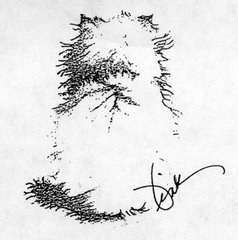












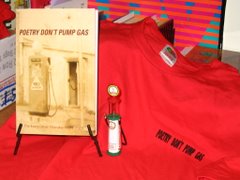
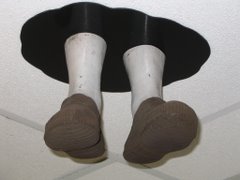


























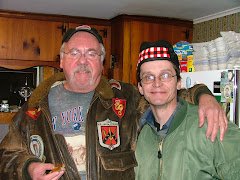
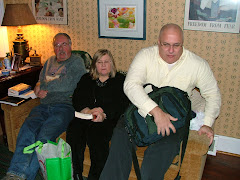
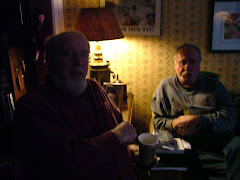
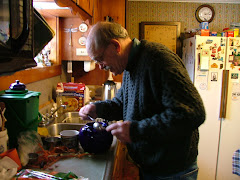
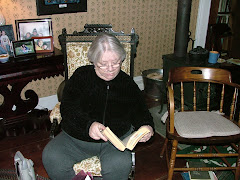
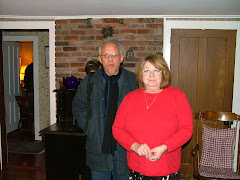
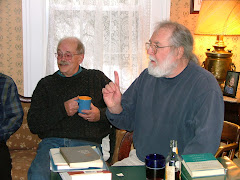
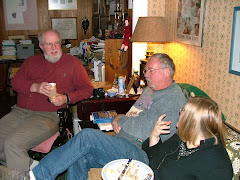
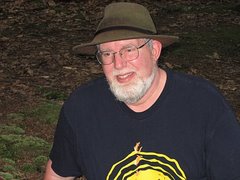
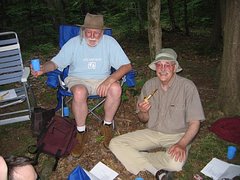
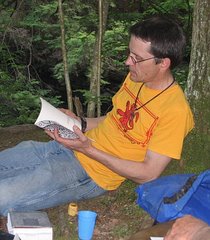
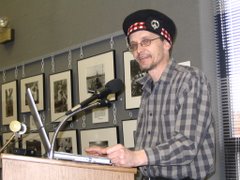
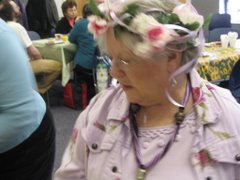
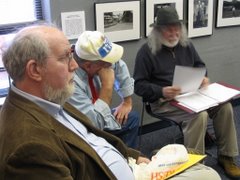
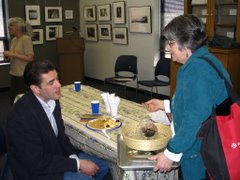
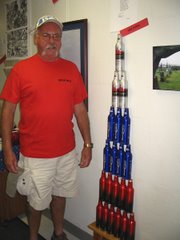

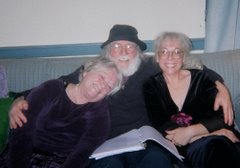
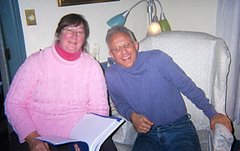
I think it would be great if we all wrote something bloggish about our take on the workshop night. It would really liven up the blog and continue discussion. Sometimes you do need time to digest a poem. Belated comments on poems would be very interesting yes?
ReplyDeleteI forgot to sign "Tim V." to the last anonymous comment.
ReplyDelete